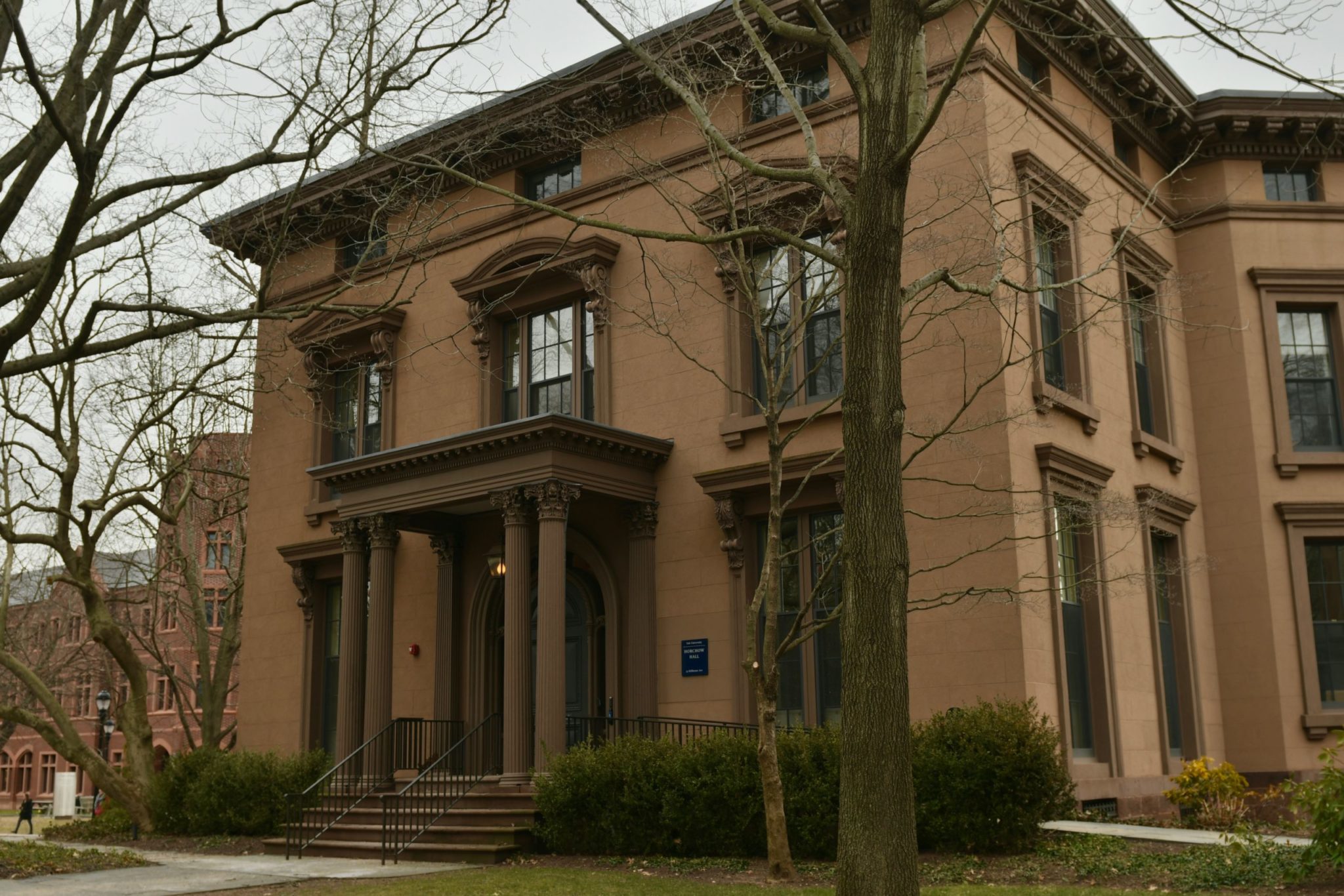
David Zheng, Senior Photographer
The Jackson Institute, currently slated to become the University’s 15th school, is a new foray for Yale.
It does not fit squarely into the mold of a professional or graduate school, as the University is hiring policy practitioners in lieu of academics to teach some of the new school’s courses. But even as Yale finalizes the details of Jackson’s launch, the changes contribute to the larger question of Yale’s academic direction. With hirings tilting towards the practical policy issues of the day instead of hard academics, some professors are questioning whether Yale is diverging from its scholarly traditions.
History professor Abbas Amanat said his chief concern is that the Jackson Institute has appointed a large number of policy practitioners instead of academics. The hires, he said, are often retired government officials who normally do not have to go through the same rigorous selection process that new professors do.
“It’s rather convenient to hire former diplomats, former generals and political commentators who are not academics,” Amanat said. “They offer courses that tend to substitute for academic courses but that are not of the same quality and depth.”
He added that, because Yale’s prestige above all is tied to the caliber of its professors and their scholarship, launching the Jackson School should be done with the utmost care not to diminish the University’s reputation as a great academic institution.
Other faculty members have raised additional concerns. According to Faculty of Arts and Sciences Senate meeting minutes from the spring of 2019, when the decision to convert the institute to a school was announced, four senators — John Geanakoplos, William Nordhaus, Jennifer Klein and Ian Shapiro — raised concerns about the lack of faculty consultation in the decision-making process, the fact that the project was donor-driven and fears it would drain resources from the FAS. The budget committee, Shapiro said, relayed those resource concerns to FAS Dean Tamar Gendler. Three faculty members — Amy Hungerford, Milan Svolik and Joseph Altonji — voiced support for the new school, per the meeting minutes.
But University President Peter Salovey said that having practitioners teach does not push Yale in a different direction, because the change is isolated to one school.
“It’s a special part of Yale,” Salovey said. “If we were doing that in every part of Yale, I think you would say that sounds like a different model for education, but we think in global affairs, global issues, you need the confrontation of the theoretical models — traditional scholarship in law and history — with the practicalities of implementation. … I think it improves the educational experience for the students that are in it.”
Salovey told the News that members of the Yale Corporation — the University’s highest governing body — “love” the idea of teaching done by both practitioners and scholars and also appreciate a school devoted to addressing questions of policy from a non-partisan viewpoint, he added. The Jackson Institute’s transition to a school was the chief subject of the most recent Corporation meeting in early December, he said.
Chair of Jackson’s transitional board Pericles Lewis added that Jackson will bring together faculty, students and distinguished practitioners such as United States Special Presidential Envoy for Climate John Kerry and General Stanley McChrystal, who were or currently are senior fellows at the Jackson Institute. This diverse roster will help Yale train the next generation of practitioners and influence current policy, Lewis said, while allowing students to rub elbows with influential policy-makers.
Paul Kennedy, a history professor and member of Jackson’s transitional board, explained that some faculty members look at universities as ivory towers of traditional scholarship, while others think that universities have a duty to provide practical training for the next generation of professionals. Yale’s medical and law schools do this, Kennedy said.
Jackson is bridging the two, blurring the clear-cut distinctions. Yale can “have its cake and eat it too,” Kennedy said — it can have practitioners, former diplomats, senators and soldiers instruct the students in policy. But, he added, it can also attract distinguished professors in history and political science, who will likely want to teach in the classical manner.
With Yale’s vast resources, Kennedy thinks Jackson is the place to try such an experiment.
The Jackson Institute was founded in 2010.
Rose Horowitch | rose.horowitch@yale.edu







